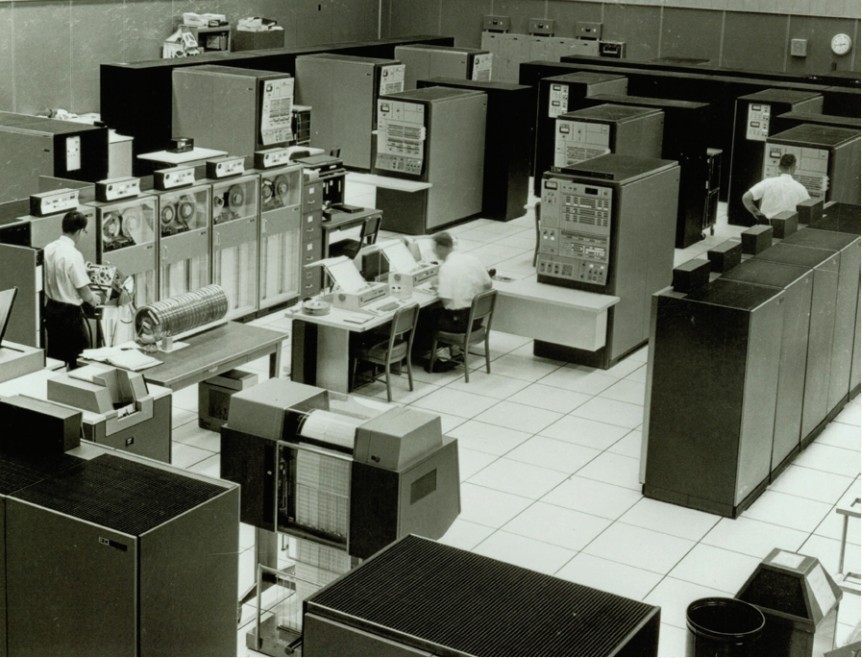
A Houston federal judge Monday found that IBM committed fraud against Houston-based BMC Software in a dispute involving IBM’s removal of BMC’s mainframe products from their largest mutual client, AT&T, during an outsourcing project several years ago.
U.S. District Judge Gray Miller ruled that during contract negotiations with KKR-owned BMC, IBM made a “material misrepresentation” that it would not displace BMC’s products from AT&T’s mainframe systems but did so anyway.
As a result, BMC is entitled to $1.6 billion in damages for fraudulent inducement claims, Judge Miller ruled, because IBM’s “business practices — including the routine eschewal of rules — merit a proportional punitive damages award.
“IBM is one of the largest technology companies in the world — and it exploited BMC’s justifiable reliance for its own gain, cementing its abdication of good faith and fair dealing in the service of its own self-reliance,” Judge Miller wrote. “IBM’s conduct vis-à-vis BMC offends the sense of justice and propriety that the public expects from American businesses.”
In a statement, BMC’s lead lawyer, Sean Gorman, said BMC is “pleased” with the outcome.
“After five years of hard-fought litigation, we were grateful for the opportunity to have our day in court in this important case,” said Gorman, a partner in Houston at Bracewell.
IBM’s lawyers at Yetter Coleman deferred comment to an IBM spokesperson, who said in a written statement that IBM would appeal the ruling.
“The verdict is entirely unsupported by the fact and law, and IBM intends to pursue complete reversal on appeal,” IBM’s statement said. “IBM acted in good faith in every respect in this engagement. The decision to remove BMC Software technology from its mainframes rested solely with AT&T, as was recognized by the court and confirmed in testimony from AT&T representatives admitted at trial.”
Judge Miller’s 106-page findings of fact and conclusions of law follows an eight-day bench trial March, when IBM and BMC duked it out.
At issue during trial was whether IBM committed fraud, breached certain provisions of its outsourcing agreement with BMC and misappropriated trade secrets and, if so, whether BMC was entitled to any lost profits in addition to any damages awarded in BMC’s favor.
BMC and IBM both provide mainframe software to customers, but only IBM offers outsourcing services. This means that in some contexts IBM and BMC are in a customer-vendor dynamic, while in others they are competitors. To add to the complexity, hundreds of customers that use BMC’s software also use IBM as an outsourcer. Until IBM performed an outsourcing project for AT&T in 2015 nicknamed “Project Swallowtail” that replaced a majority of BMC’s mainframe software with IBM’s own, AT&T was BMC’s largest and one of its oldest clients.
In his ruling, Judge Miller said IBM fraudulently induced BMC into signing a 2015 revision of their outsourcing agreement, specifically section 5.4, which laid out a list of mutual customers for whom IBM was banned from replacing BMC products — unless it paid additional licensing fees. AT&T was one of those customers. The agreement allowed IBM to access and use BMC’s products on AT&T’s mainframe systems for the sole purpose of supporting the client. By going beyond that paramater, Judge Miller ruled, IBM breached section 5.4.
Judge Miller said there is “clear and convincing evidence” that IBM induced BMC into entering the 2015 agreement “so that it could exercise rights without paying for them, secure other contractual benefits and ultimately acquire one of BMC’s core customers.
“Because BMC entered the 2015 OA with IBM, IBM was able to access and use BMC’s software at AT&T for ‘no fee’ while blatantly violating the non-displacement provision,” Judge Miller wrote. “IBM’s violation of the contract resulted in direct damages — namely, the lost license fees — which BMC may recover. Thus, BMC’s reliance caused its injury.”
In a final judgment, also issued Monday, Judge Miller dismissed with prejudice most of BMC’s remaining breach of contract claims (some were resolved at summary judgment) as well as BMC’s trade secrets and lost-profits claims.
Judge Miller noted that his finding in BMC’s favor on its fraudulent inducement theory “affords BMC the greatest recovery” out of the multiple damages models BMC presented at trial.
The $1.6 billion award includes $717.74 million in actual contractual damages, $168.23 million in prejudgment interest, $717.74 million in punitive damages as well as post-judgment interest at the “federally mandated” two percent rate.
During the trial’s March 24 closing arguments Gorman, the lead BMC attorney, proposed the $717 million figure for actual damages but suggested no specific amount for the punitive damages his client requested.
IBM argued at trial that it shouldn’t be liable because AT&T would have eliminated BMC’s products regardless, IBM never misrepresented its interpretation of the contract, BMC failed to perform its end of the deal and IBM was simply carrying out AT&T’s wishes.
In addition to Gorman, the Bracewell team representing BMC at trial included Chris Dodson, Tim Geiger and Andrew Zeve.
IBM’s trial team included Paul Yetter, Tim McConn, Reagan Simpson and Grant Martinez of Yetter Coleman and Richard Werder, Rachel Epstein and Donald Renhard II of Quinn Emanuel.
